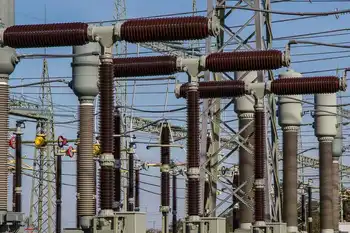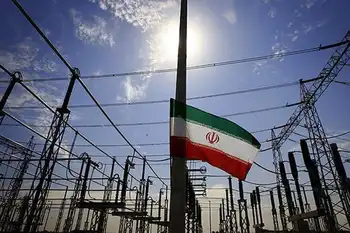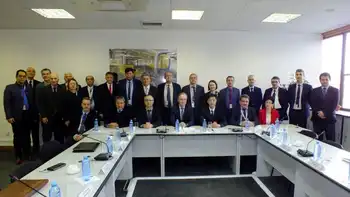Looking for solar gold at the Games
By Financial Post
CSA Z463 Electrical Maintenance
Our customized live online or in‑person group training can be delivered to your staff at your location.

- Live Online
- 6 hours Instructor-led
- Group Training Available
Conserval Engineering Inc., a 30-year-old renewable energy business based in Toronto, has installed two of its SolarWall panels in the Beijing Olympic Village, including a cutting-edge hybrid solar system that generates both electricity and heat energy.
The two giant panels - 35 square metres and 100 square metres apiece - are fixed on to buildings that will become a kindergarten after the Games and have already fuelled more interest in SolarWall's technology, said Conserval's Adam Wei.
But while the company's Olympic success may be its most high-profile win, Conserval has already been selling its product to Chinese universities, real estate developers, shopping malls, and even Petro China's oil fields for the past three years, says Mr. Wei, speaking from the company's Chinese headquarters in the port city of Qingdao.
Privately held Conserval, which has sales in about 30 countries, does not make its accounts public, but says sales have risen about 50% a year for the past few years.
In fact, the attention Conserval has recently garnered reflects the exponential growth in the market for solar power. Concerns about global warming and rising energy prices have powered interest in the sector, said Charles Yonts, a solarpower analyst with Hong Kong-based investment bank CSLA Ltd.
Some analysts forecast global solar-energy revenue will jump to as much as (US) $124-billion by 2010 from (US) $13-billion in 2005, and while worldwide shipments of solar-power products have already grown at an annual rate of 40% over the past five years, sales are expected to soar even faster in the next few years, according to a recent report from Lehman Brothers.
The German and U. S. markets are particularly strong, but interest in China is also developing quickly. The country's 10%-plus annual growth rate has been driven mostly by fossil fuels, but the government is wary of becoming overly reliant on imported oil, says Bob Gorman, chief portfolio strategist at TD Waterhouse Inc in Toronto.
In addition, "leadership in the rapidly growing solar industry would be a great attribute for the Chinese economy and aid in its transformation from a low-cost provider of basic products to a developer and exporter of more technologically advanced manufactured goods," Mr. Gorman said.
Globally, the rapid development of the industry is so strong that one of the biggest problems facing the solar market now is a shortage of the raw materials used in most panels, which - along with concerns about whether governments worldwide will continue to support the industry with subsidies - has put a dent in the share prices of some of the largest solar-power providers. For instance, sector-leading Suntech Power Holdings Co., based in Wuxi, China, has seen its stock slip 57% from its December, 2007, high.
There are also concerns for all solar suppliers about a glut in solar-energy supply once issues with raw materials are overcome. "Once that supply shortage is corrected, you may well see more supply than demand, which could cause pricing issues for solar producers," said TD's Mr. Gorman. Also, to the extent there's a correction in oil prices and the shares of its producers, there could be some corresponding short-term weakness in shares of solar-energy producers, he added.
Still, the long-term future for the industry looks good with plenty of room to grow. "Solar will still be a drop in the global electricity market, accounting for just 1.5% of installed generating power in 2011, up from 0.3% at the end of 2007," said Mr. Yonts.
And while most analysts believe companies with the supply chain or sales distribution advantages will be best-placed to take advantage of the market's expansion, companies, such as privately held Conserval, that can showcase a technological advancement will also be hoping to cash in.











